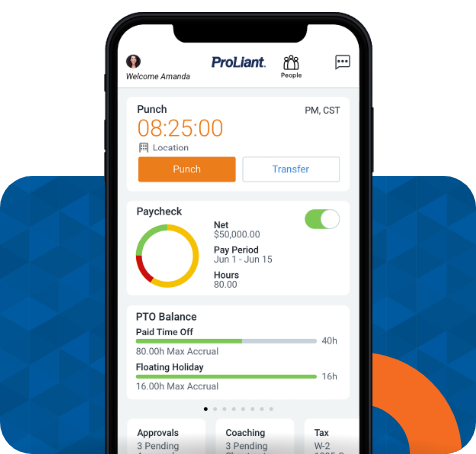We are halfway through 2022, and the unemployment rate is at 3.6%, job openings are at 11.4%, and employers are still having a hard time finding candidates with the specific skills necessary to fill open positions. A recent report from SHRM suggests that alternative job credentials will be the answer to filling the skills gap.
What are alternative credentials?
Alternative credentials have become increasingly popular during the pandemic. These credentials include things like training certificates, industry certifications, professional certifications, and course completion certificates that demonstrate an individual’s competencies and experiences. Also, according to SHRM, “these credentials are key to uncovering untapped talent among people who may not have specific work experience or a degree but have been trained in competencies needed for the job.”
The Value of Alternative Credentials
Marcy Fluevog, HR Manager at Proliant, has also noticed a trend in recent years, noting, “Alternative credentials have gained more popularity over the past few years. More and more people are seeking out these credentials as a way to stand out as candidates and gain more knowledge in a particular area.” Research shows that alternative credentials are indeed very popular with workers in the U.S., especially for those without a traditional education (58% of working-age adults).
58%
Working-age adults in the U.S.
without a 4-year degree
An additional benefit to alternative job credentials is that they will increase the number of job applicants qualified for the millions of open positions across the country. Fluevog explains, “Allowing for credentials in lieu of other background requirements such as a 4-year degree can open up your company to a much more diverse candidate pool,” as alternative credentials are popular with candidates such as older workers, people without formal higher education, veterans, and other people with nonlinear or nontraditional work histories.
While considering alternative credentials will open up your applicant pool to more diverse candidates, this practice can also help narrow it down to the most qualified individuals and, according to Fluevog, “provide you with candidates that have a more narrow focus on certain areas or subjects.” In addition, Fluevog explains, “these credentials [often] require certain levels of experience and background before you can even test for them. They can really show the in-depth knowledge a candidate has in a particular area. Many of these credentials are not easy to get either, and it again shows the candidate's knowledge and dedication to their expertise.”
Assessing Alternative Credentials
Alternative job credentials are a way to assess a potential candidate’s competencies and skills in their field and are usually easy to verify. All it takes is research into which certifications, apprenticeships, badging, etc. will be most relevant to the skills and abilities needed to fill open positions within your organization.
In 2020, there were
967,734
unique credentials in the U.S. (SHRM)
Proliant’s Marcy Fluevog explains, “For HR and recruiting teams, it can be overwhelming to be knowledgeable about various credentials. However, in many industries, there are likely a handful of credentials that may be best suited for your company. Therefore, it’s important to research, understand, and make a list of accepted credentials your company prefers. At Proliant, we highly value the different payroll, tax, and HR certifications. We always look for these in our candidates, and we strongly encourage our employees to pursue them.”
Use an Advanced ATS to Identify Candidates with Relevant Alternative Credentials
One of the most significant issues with assessing talent based on alternative credentials, according to SHRM, is that most applicant tracking systems do not have a “standard approach to collecting this information in the same manner as traditional education and experience.”
However, there are improved applicant tracking systems that have versatile search functions and applicant sorting tools that allow employers to narrow down applicant pools based on keyword searches. This functionality allows employers to find applicants with certifications and training relevant to their job openings in addition to searching for traditional qualifications.
Proliant offers an applicant tracking and recruitment solution that helps employers find qualified job candidates while providing an excellent experience for applicants. Our flexible job application builder, modern interface, and texting capabilities give companies the edge they need while also making it easy to find candidates with various qualifications and credentials. Learn how your organization can tap into a more diverse talent pool with Proliant’s ATS by clicking the button below.









No Comments Yet
Let us know what you think